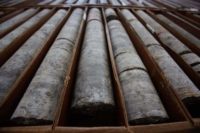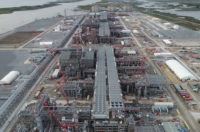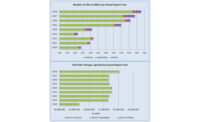With new procedures in place to streamline permits for liquefied natural gas export terminals, the Federal Energy Regulatory Commission in late August slated 12 LNG terminals for environmental review. The agency has taken new steps, including hiring independent construction inspection contractors, that will speed the reviews by nine to 12 months, according to FERC.
Despite the measures, however, contracting hiccups and a possible Chinese tariff on LNG could delay the construction of up to 20 of the multibillion-dollar superchilled natural gas facilities, including the 12 under review.
On Sept. 4, NextDecade Corp. announced it was seeking a new EPC contractor for its Rio Grande LNG terminal after it and McDermott agreed not to execute an EPC contract for construction of a South Texas project because McDermott could not secure a partner to build the plant.
NextDecade instead has issued formal invitations to Bechtel and Fluor to bid on the project and invited McDermott to secure a partner. The company says it expects to execute a final EPC contract in the third quarter of 2019.
McDermott is partnering with Zachry and Chiyoda on the Freeport LNG plant in Texas and with Chiyoda for the Cameron LNG project in Louisiana.
“McDermott takes a consistent and prudent approach to managing portfolio risk. Our approach consistently includes a partner on large LNG projects. We remain committed to our LNG business,” McDermott spokeswoman Gentry Brann said in a statement.
A broader problem could be a threatened 25% Chinese tariff on U.S. exports of LNG. China is the third-largest importer of U.S. LNG. Problems in reaching an agreement with China on the tariffs could “delay the second wave of U.S. LNG projects from receiving final investment decisions,” Matthew Hong, director of power and gas research at Morningstar, wrote Aug. 22.
But Housley Carr, an analyst at RBN Energy, says China isn’t the only market for U.S. LNG. “Instead, we would expect LNG to be swapped with U.S. LNG flowing to, say, Europe or Japan, and African or Australian LNG cargoes being rerouted to China,” he says.





Post a comment to this article
Report Abusive Comment